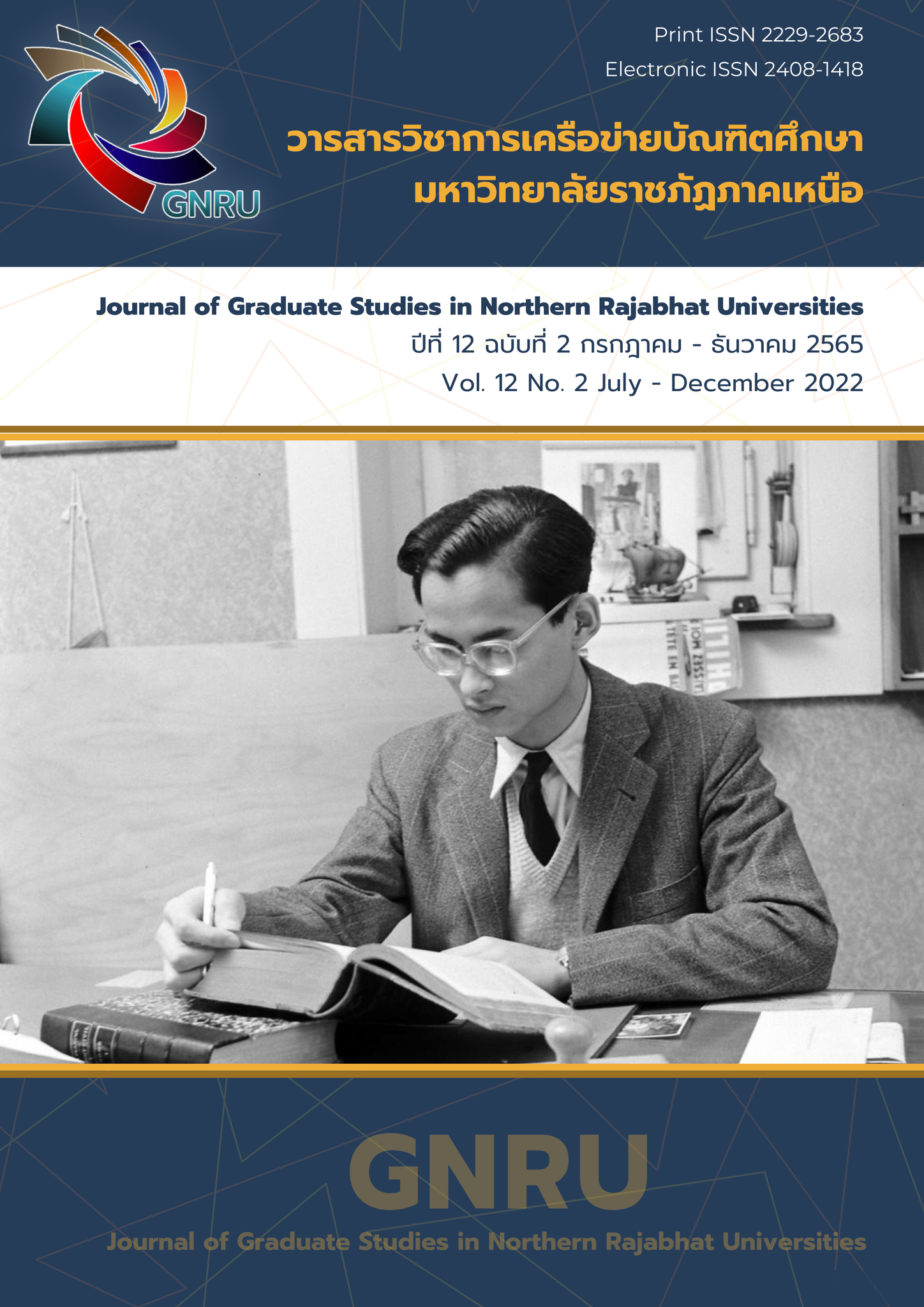The Factors of intrinsic value and Growth Mindset for Undergraduate students University
Main Article Content
Abstract
This research was purposed to study and examine indicators components of Value and growth mindset for Undergraduate students and Construct Validity. The sample subjects of each phase as following: 1st phase 3 experts, 650 students of the Undergraduate students University for CFA. This is method came from Multistage Random Sampling. Research tool is Value and growth mindset for student. This research used rating scale for 6 levels with 47 questions. The researcher analyzed the data by correlation coefficient with confirmatory factor analysis.
Results of the research were as follows:
- There were four factors of Value such as 1) Intrinsic value 2) utility value 3) Relative Cost
4) Attainment Value and six factors growth mindset such as 1) Believe that intellectual ability 2) Embrace Challenges 3) Effort as the path to mastery 4) Persist in the face of setbacks 5) Learn from criticism and
6) Inspire from other success. The researcher analyzed the data by correlation coefficient with confirmatory factor analysis.
- The model is correlated with Value for Undergraduate teacher professional students.
The statistic shows that Chi-square is 0.00 (P = 1.00), (RMSEA) equal 0.00. The result shown that the model is construct validity. And the model is correlated with growth mindset for Undergraduate students. The statistic shows that Chi-square is 11.90 (P = 0.15558), the degree of freedom is 8 (GFI) equal 0.99, (AGFI) equal 0.98 ค่า, and (RMSEA) equal 0.028. The result shown that the model of Value is construct validity. Which can put in the order as follows Intrinsic value, utility value, Relative Cost and Attainment Value. The weight of component as follows 0.93, 0.85, 0.60 and 0.55. The result shown that the model of Growth Mindset is construct validity. Which can put in the order as follows Embrace Challenges, Learn from criticism, Persist in the face of setbacks, Effort as the path to mastery, Inspire from other success and Believe that intellectual ability. The weight of component as follows 0.85, 0.83, 0.78, 0.63, 0.50 and 0.42.
Article Details
References
กองนโยบายและแผน. (2562). สารสนเทศเพื่อการบริหาร.สืบค้นจาก http://www.plan.cmru.ac.th/dataset/std.php
ดาว์พงษ์ รัตนสุวรรณ์. (2560). พระบรมราโชบายในพระบาทสมเด็จพระปรเมนทรรามาธิบดีศรีสินทร
มหาวชิราลงกรณฯ พระวชิรเกล้าเจ้าอยู่หัวกับการพัฒนาการศึกษา. เอกสารประกอบการบรรยาย ณ คณะครุศาสตร์ จุฬาลงกรณ์มหาวิทยาลัย.สืบค้นจาก https://shorturl.asia/TPjxk
ทรงศักดิ์ ภูสีอ่อน.(2554). การประยุกต์ใช้ SPSS วิเคราะห์ข้อมูลเพื่อการวิจัย (พิมพ์ครั้งที่ 5). มหาสารคาม : สำนักพิมพ์มหาวิทยาลัยมหาสารคาม.
สมบัติ ท้ายเรือคำ.(2555). สถิติขั้นสูงสำหรับการวิจัยทางการศึกษา(พิมพ์ครั้งที่ 2). มหาสารคาม : สำนักพิมพ์มหาวิทยาลัยมหาสารคาม.
อารยา ปิยะกุล. (2020). การศึกษามายด์เซ็ตการให้คุณค่าและการจัดการเรียนการสอนในชั้นเรียนของครูคณิตศาสตร์. วารสารวิธีวิทยาการวิจัย (Journal of Research Methodology: JRM), 33(3).
อริยา คูหา.(2556). จิตวิทยาเพื่อการดำรงชีวิต(พิมพ์ครั้งที่ 2). ปัตตานี: โรงพิมพ์มิตรภาพ.
Blackwell, L.S., K.H. Trzesniewski and C.S. Dweck. (2007). “Implicit Theories of Intelligence Predict Achievement Across an Adolescent Transition : A Longitudinal Study and an Intervention,” Child Development. 78(1) : 246-263.
Battle, E. S. (1966). Motivational determinants of academic competence. Journal of Personalityand Social Psychology, 4(6), 634.
Dweck, C. S. (2000). Self-theories: Their role in motivation, personality, and development. Psychology Press.
________. (2006). Mindset : The New Psychology of Success. New York : Random House.
Eccles J. S., Adler, T. F., Futterman, R., Goff, S. B., Kaczala, C. M., Meece, J. L., & Midgley,C.(1983). Expectancies, values, and academic behaviors. In J. T. Spence (Ed.),Achievementand achievement motivation (pp. 75–146). San Francisco, CA: W. H.Freeman.
Hair, J.F. and others.(2006). Multivariate Data Analysis. (Vol. 6). Upper Saddle River, New Jersey : Pearson Prentice Hall .
Schunk, Dale H; Pintrich,Paul R;& Meece, Judith L. (2014). Motivation in Education : Theory, research, and applications (4rd ed). Upper Saddle River, New Jersey: Pearson Education.
Yamane, T. (1973). Statistics: An Introductory Analysis. 3rded. New York: Harper and Row Publication.


